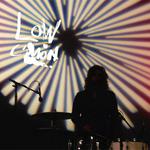
Low C'mon
(Sub Pop)
Sometimes a step backwards is a step in the right direction. Over the past half-decade Minnesotan Mormons Low have gone to some very dark places both personally and professionally, culminating in a decidedly mixed response to the harsh electronic tone of their last album Drums and Guns, and the shake-up of the band's previously stable line-up as husband and wife and core duo Alan Sparhawk and Mimi Parker parted company with several bass players. However, C'mon, their first album in four years is, as the name would suggest, a much more inviting prospect. While not turning the clock back so far as to pursue the bleak minimalism of the likes of The Curtain Hits the Cast or Songs for a Dead Pilot, the Low found on C'mon most closely resembles the band as they were a decade ago, even seeing them return to the same desanctified church where they recorded 2002's Trust (following on the heels of PJ Harvey's similar choice of recording location for Let England Shake, maybe this will mark the start of a colourful, if slightly weird trend).
Over the eighteen years that Low have been operating, the band have acquired a reputation for being stubbornly, perversely quiet and slow, and while the description ultimately does them a bit of a disservice, there are plenty of moments on C'mon where they use such dynamics to their advantage. Several tracks, such as $20, Majesty/Magic and Nothing but Heart, follow the old post-rock trick of starting out modestly and gradually building to a loud dramatic finish, however, instead of seeming calculated, their delivery feels refreshingly heartfelt and earnest. This is particularly true for $20, with its refrain of 'My love is for free' being delivered so genuinely that the band manage to reclaim the sentiment from the meaninglessness of overuse in countless crass pop songs.
C'mon may see Low follow musical paths that are simple and well-worn, but as they know, these qualities are sorely underrated and when used correctly can be devastatingly effective, such as in the opening and closing tracks Try to Sleep and Something's Turning Over, which both use the directness of their stripped back sound to great effect. By contrasting sweet, lullaby-like melodies (the latter features backing vocals from Sparhawk and Parker's two children) with imagery that runs from the nightmarish and threatening to a sadly premature sense of world-weariness, the band manage to convincingly infuse these bookending tracks with the simultaneous sense of innocence and terrifying uncertainty of childhood.
Even more deceptively simple are album highlights Nightingale and Especially Me. The former is a sparse lyrical sketch of heartbreak set against the suitably nocturnal sound of a sole, echoing electric guitar, while Especially Me uses a rigid and unshifting backdrop based around the repetition of a handful of guitar chords to underpin a stunningly bold vocal performance from the usually reserved Parker. When, late on in the song, she sings 'This song is for your sake' it's hard not to agree with her; music rarely gets more vital and necessary than this.
Witches marks the only significant deviation from the pattern and as such also emerges as an album standout, although not really in a good way. While the religious paranoia running through its lyrics is something that Low have covered numerous times before, and often very well (much like Sufjan Stevens, instead of merely viewing their songs as an opportunity to offer praise to god, they're willing to follow their beliefs down more troubling avenues), throughout the song it feels like Sparhawk is trying too hard fit in everything he wants to say and has to cram at least a couple of syllables too many into each line. The effect is a surprisingly amateurish one and the song feels like it could collapse from the strain at any moment. That being said, Witches is not without merit, as its pitting of gloomy guitar noise against gently plucked banjo is one of the most compelling bits of instrumentation on the album.
Let's not call C'mon 'a return to form' (possibly one of the most clichéd terms in music reviewing) as it's not like Drums and Guns and its predecessor The Great Destroyer were in any way bad albums – they just fell rather short of their ambitions – and besides, Low fans don't seem to be very good at actually agreeing on when exactly the band found or lost their form. But by stripping things back a little, Low have turned in their most confident, consistent record to date (admittedly this might have something to do with the fact that, running to only ten tracks, C'mon is also their shortest), and even, in places, sound like they're actually enjoying themselves. Hopefully they won't keep us waiting so long for the next one though.
11 April, 2011 - 11:36 — Mark Davison